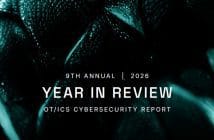
Staff Writer
The Australian Senate passed controversial legislation this week that gives crime agencies significant new powers to digitally spy on suspected criminals.
The Surveillance Legislation Amendment (Identify and Disrupt) Bill 2020 gives the Australian Federal Police (AFP) and the Australian Criminal Intelligence Commission (ACIC) access to three new types of warrants designed to target cyber-enabled serious and organised crime.
A new data disruption warrant allows either agency to tap into a suspected criminal’s computer or network to access data and disrupt suspected criminal activity.
The network activity warrant allows the agencies to collect intelligence on criminal networks operating online. The account takeover warrant enables the agencies to take over a person’s online account for the purposes of gathering evidence of criminal activity.
Minister for Home Affairs, the Hon Karen Andrews MP says the bill is needed to ensure Australia’s law enforcement agencies have the tools they need to keep pace with online criminal activity.
“This Bill is just one more step the Government is taking to ensure our agencies maintain that edge,” Minister Andrews says.
”Under our changes, the AFP will have more tools to pursue organised crime gangs to keep drugs off our street and out of our community, and those who commit the most heinous crimes against children.”
Earlier in August, a Parliamentary Joint Committee on Intelligence and Security (PJCIS) inquiry into the proposed legislation called it world-leading and novel. But the committee identified issues with the articulation and definition of necessity and proportionality regarding the proposed new spying powers.
In their final report, the PJCIS made 33 recommendations. Sixty amendments were made to the original bill before it passed the Senate on Wednesday. The amendments addressed 23 of the recommendations made by the PJCIS.
Despite some concerns, the legislation was passed with the support of the opposition Labor Party. Labor calls it an important bill that addresses gaps in the legislative framework. But Labor remains concerned about how the new powers could be used.
Previously, concerns were raised about the broad range of criminal activity the warrants could be used to counter. There are also concerns warrants are authorised by a member of the Administrative Appeals Tribunal rather than a judge.
Critics of the bill say its scope should be confined to defined serious crimes. As it stands, the catch-all provisions could potentially extend to tax offences and copyright infringements.
“There is a lack of evidence justifying the need for warrants of this nature,” says Greens Senator Lidia Thorpe.
However, the Australian Government says the amendments address many of these concerns. Amendments raised the bar to issue warrants from “justifiable and proportionate” to “reasonably necessary and proportionate.”
Karen Andrews says the new powers will be monitored by the Commonwealth Ombudsman and the Inspector-General of Intelligence and Security. The Minister says this will ensure any agency use of the powers is appropriate.
The Identify and Disrupt Bill will also be subject to review by the Independent National Security Legislation Monitor and the PJCIS in 2024.





